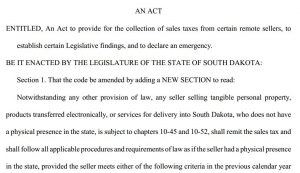Every day new startup companies come up with great ideas they hope will be the next big thing. With the advent of internet based crowdfunding, startup companies and inventors can easily use internet crowdfunding platforms such as gofundme.com, kickstarter.com and many others to market and finance new inventions. As of January, over 14 million people have helped fund $3.5 billion to almost 140,000 Kickstarter projects.
While these platforms have revolutionized the way startups and inventors finance and market their business plans and goals, entrepreneurs using these platforms can jeopardize their ability to protect those new ideas by disclosing an invention before filing for patent protection. But with proper planning, startups seeking funding can avoid losing valuable patent rights.
A common scenario is a startup company needs to raise funds and signs up with a crowd-source funding program like Kickstarter. The startup discloses its new ideas through an internet platform and raises funds by soliciting money from the public for a small reward in return. These startups do not offer equity or revenue sharing; they offer promotional items like limited editions or copies of the creative work being produced.
Once the project is funded and starts to gain traction, the startup entrepreneurs first think about patent protection and learn that it is too late to protect the patentable property. This common tale of woe shows how a startup seeking crowdfunding can lose its patent rights: disclosure and offer of sale.
How exactly are patent rights lost through disclosure?
Fundraising platforms enable startups and inventors to acquire financing and exposure but, at the same time, may require inventors or startups to disclose their inventions to the public. Under federal law, an inventor must file a patent application within one year after disclosing their invention.
Disclosure can be a publication or a public use of the invention. If a patent application is not filed within a year of the disclosure, it is considered a novelty defeating event and the invention is no longer patentable.
However, not all disclosures are significant enough to trigger the filing requirement. To be a sufficient disclosure, there must be enough information disclosed to enable a person having ordinary skill in the art to make and use the invention.
It should be noted that losing patent rights is not exclusive to fundraising platforms. The same legal repercussions, such as novelty defeating events, can result by simply publishing an invention anywhere on the internet or actual use in a public place.
Another problem with disclosure is the risk of another entity filing a patent application based on the disclosure. The United States and most other industrialized countries have a first to file patent system. If another entity wins the race to the patent office, all rights to the invention are lost.
What is a novelty defeating event?
Novelty defeating events render the invention no longer new or novel. An invention is no longer considered novel or new when it is considered known to the public. What does this mean exactly? An invention is considered known to the public when there are pre-existing inventions or references that already describe the components of the disclosed invention. Even if it was the inventor who disclosed the invention, it is considered a novelty defeating event.
Offer of sale as novelty defeating event
Disclosing your invention on a fundraising platform is not the only potential way to lose your patent rights. Even if you do not disclose enough information to enable a person having ordinary skill in the art, you can still lose your patent rights through an on-sale bar. On-sale bars occur when the invention is sold or offered for sale one year before the filing of the patent. The on-sale bar requires that the invention is ready for patenting, which means either some tangible model of the invention is produced or the inventor has enough information to create the invention.
So even without a sufficient public disclosure to enable someone with skill in the art to make the invention, patent rights can still be lost when the invention is ready for patenting and offered for sale.
But is there really a sale?
The question of whether an invention is the subject of a commercial offer of sale is analyzed under the generally understood law of contracts. The Federal Circuit Courts have held that a sale occurs when there is a contract between parties to pass rights of property for consideration which the buyer pays the seller for the thing bought or sold. Whether a sale occurs will vary with each case.
The Federal Circuit has also established a framework for determining whether or not there is an offer for sale, and identified several factors for consideration in the analysis. In doing so, it stated that such a sale must bear the hallmarks of a sale pursuant to the Uniform Commercial Code.
The commercial code defines a sale as the transfer of title. A transfer of title suggests that the inventor has given up some or all of its interest and control over the product.
Postings on crowdfunding platforms in and of themselves do not appear to constitute a sale. Rather, it is the language of the post, and the description of the project, that can make or break an inventor. Here is where the tension arises. In order to obtain funding, an inventor must generate attention and excitement for their project. The inventor must provide sufficient detail as an enticement for prospective funders to feel comfortable sending money.
A general search of crowdfunding sites reveals that while you cannot immediately buy the products, if you donate a certain amount, you receive a product or prototype when production begins. It could be argued that such an exchange of money for a prototype or finished product (regardless of the timing) would constitute a sale sufficient to start the clock running.That is not to say that you cannot raise money on these platforms without harming your rights. On the contrary, it all depends on the phrasing of the post and what you are offering the contributors. And of course the timing of the patent filing.
Measures and safeguards to protect patent rights
Generally, once patent rights are lost, there is no way to reclaim them. Thus, it is imperative that inventors and startups take the proper steps and precautions to ensure that novelty defeating events do not occur. However, it may be impossible to keep information pertinent to the invention strictly confidential while asking for funds through crowdsourcing. Therefore, the pivotal step in retaining any potential patent rights would be to file a patent application before any disclosure or offer of sale.
Registered patent attorneyVincent LoTempiois a partner at Kloss Stenger & LoTempio: vglotempio@klosslaw.com.Justin Klossis an associate attorney at the firm who focuses on litigation: jdkloss@kloss.com. Law clerk Anthony Vu contributed to this article.
This Column also appears in Buffalo Business First.












